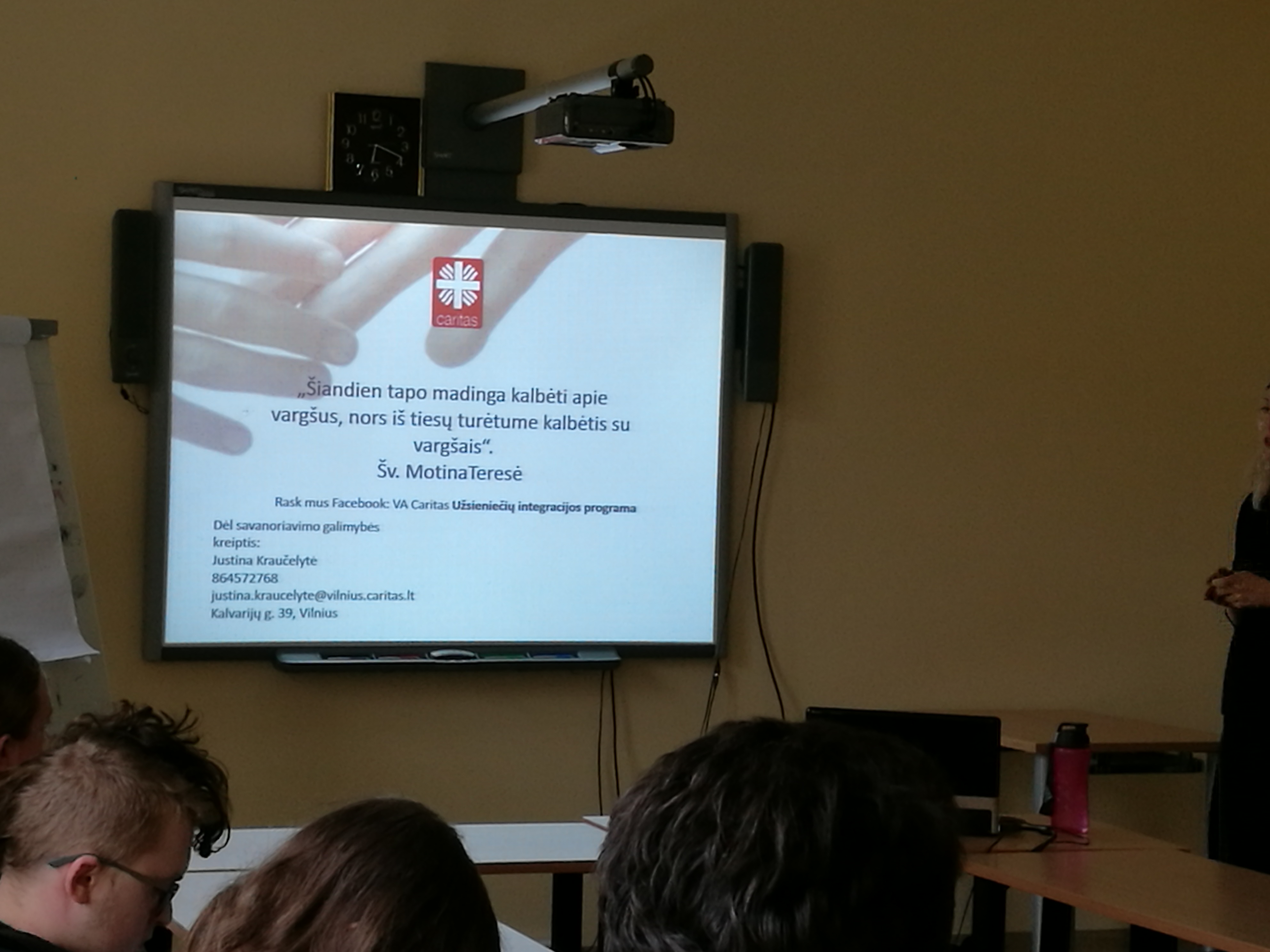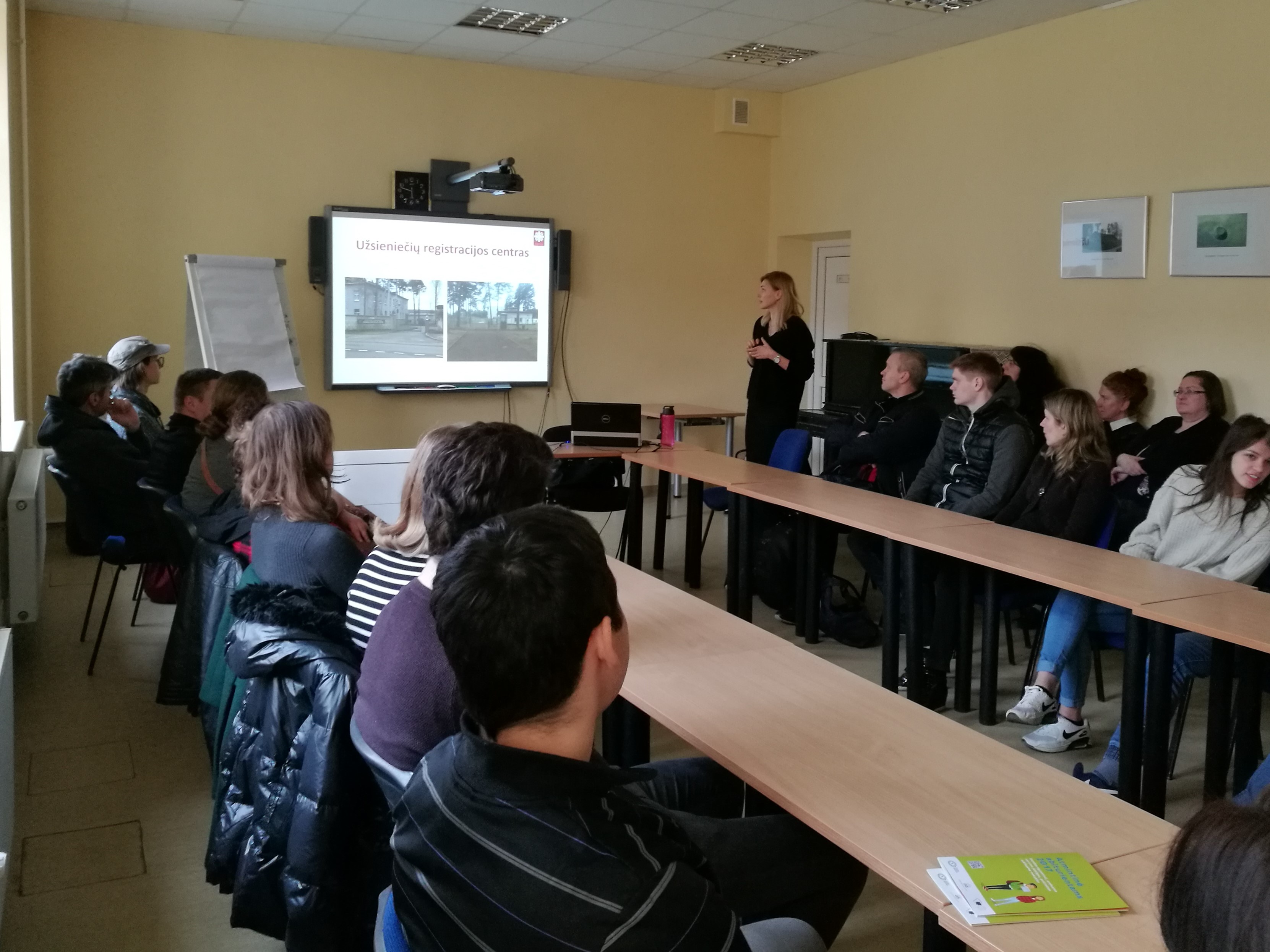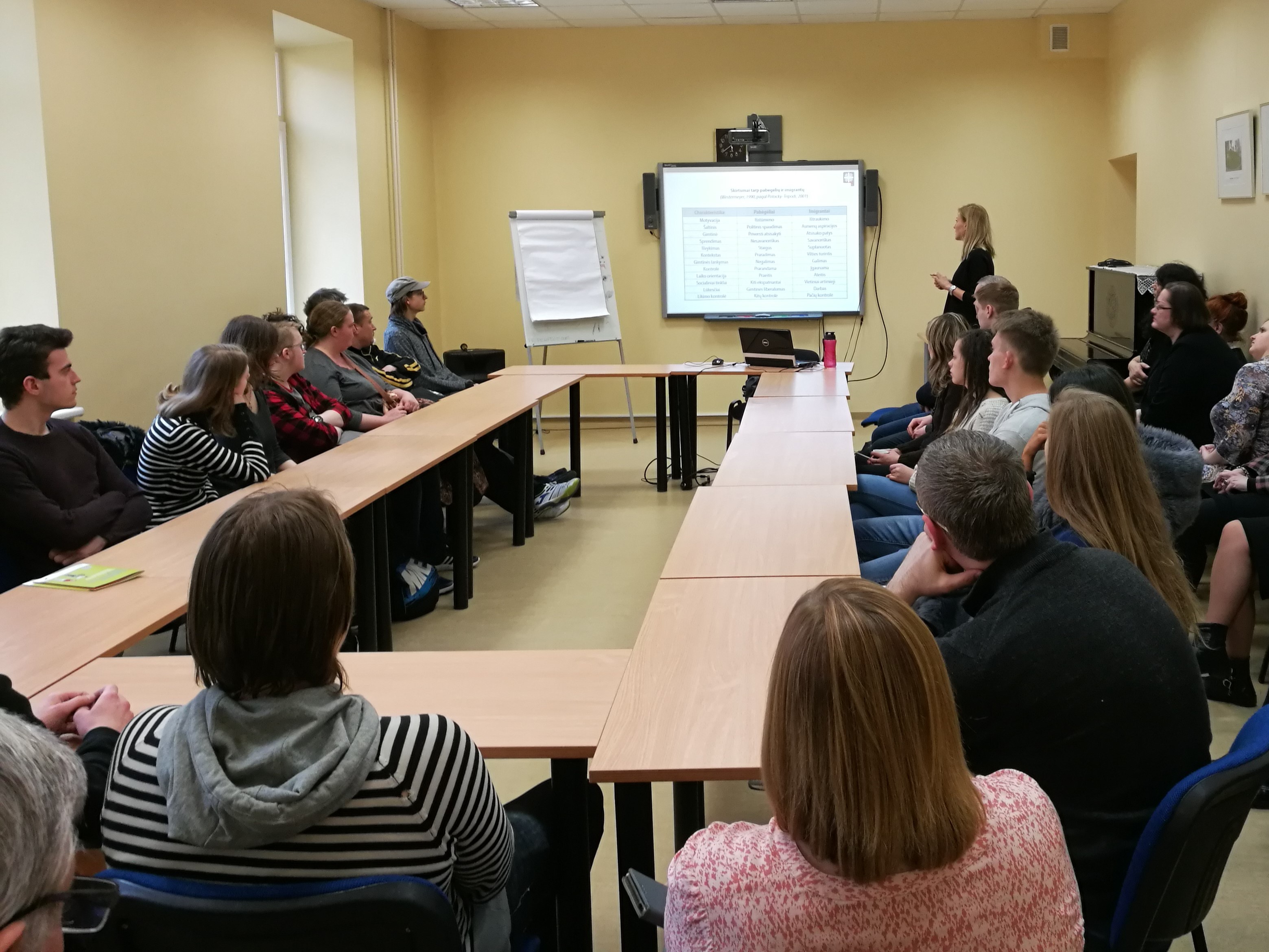

NGO
Vilnius Adult Education Centre (VAEC) had contacted NGO "Caritas"- a catholic institution that apart from many activities also have a refugee center and a long experience in working with immigrants. Caritas promised to keep VAEC up-to-date on the situation with refugees and immigrants. They will also inform the Centre about the events organized in the city related to the subject matter. While at the same time VAEC agreed to encourage its students to take active participation as volunteers in activities that Caritas will conduct.
On the 25th of April the representative of Caritas visited VAEC. Students, teachers, and technical personnel participated in this event. The speaker Ilma Skuodiene the head of the department of foreigners' integration made an interesting presentation about the immigrants and refugees in Lithuania. In her presentation not only did she inform about how many refugees live in Lithuania but also what do they do and what are the challenges of integrations. It is known that Lithuania has agreed to resettle 1,105 refugees in the next two years, mostly from Italy and Greece. However its not that simple as it might have seemed at the beginning. The refugee centre/camp in Rukla (central Lithuania) is full and is going to be shut down and the people living there will be relocated to Lithuanian municipalities. Five largest Lithuanian cities should accommodate the foreigners. But again the shortage of social housing is huge and the rent is extremely high baring in mind that Lithuania pays a refugee family of two parents and two children 450€ a month for the first six months. Finally, in over a year, 254 refugees were moved to Lithuania and it is including 142 who have already left the country and went to other EU states.
Another issue that refugees face is mostly negative attitude of the Lithuanian residents. Mrs Skuodiene speaks about stereotypical way of thinking, clichés that come from mass media and ignorance. But In spite of that she is hopeful that it is possible to change the negative attitudes towards asylum seekers, if people understand what does it mean to be a refugee and they have no other choice. It is important to create ways of communication and contact, to get to know them so that people would see that the person is not a threat nor a stranger.
http://caritas.lt/
